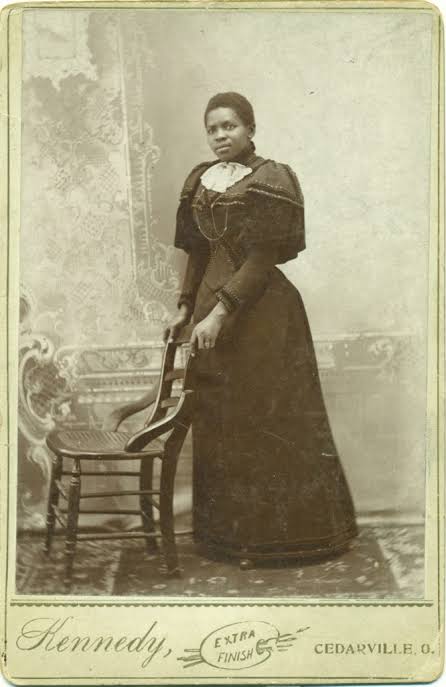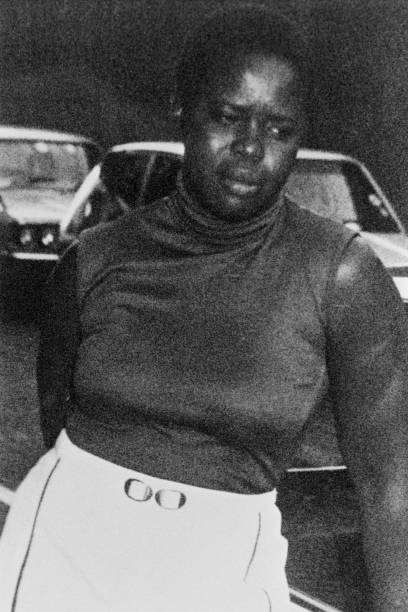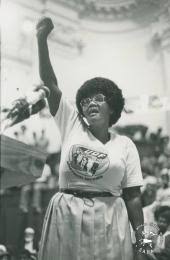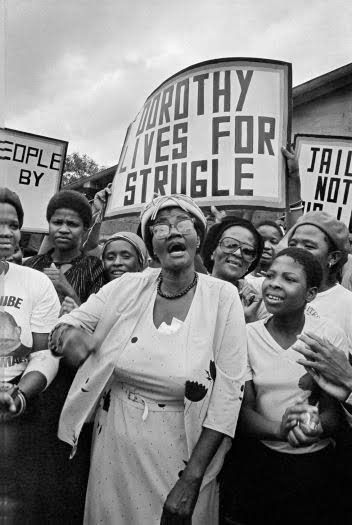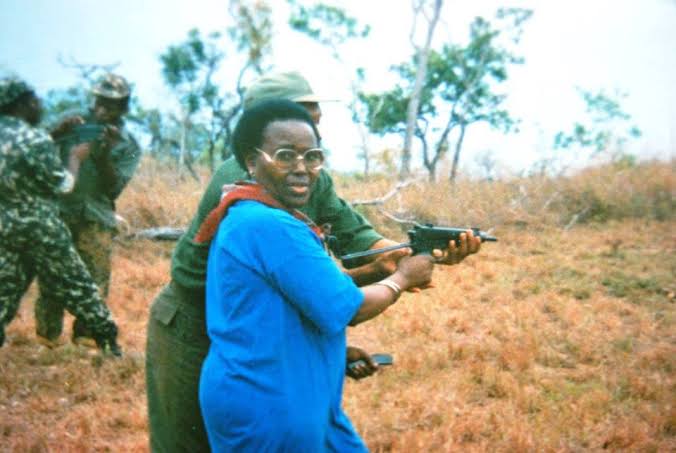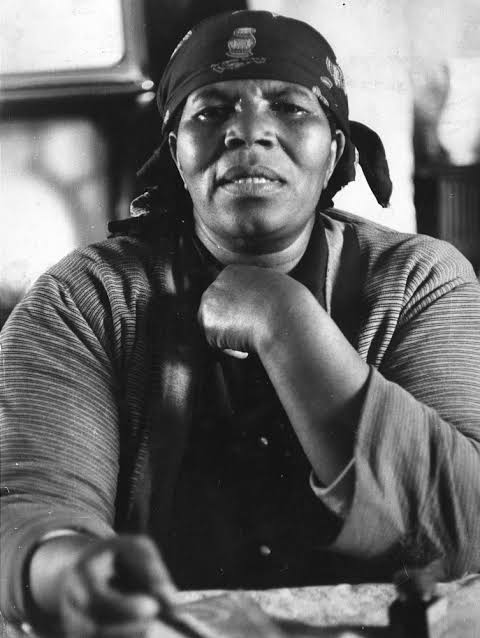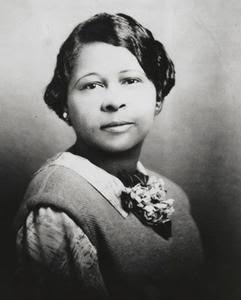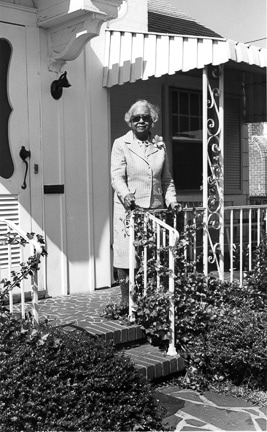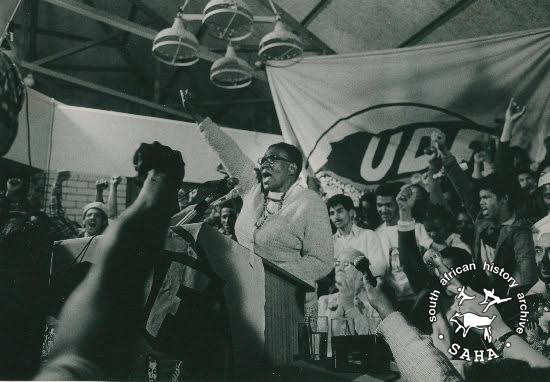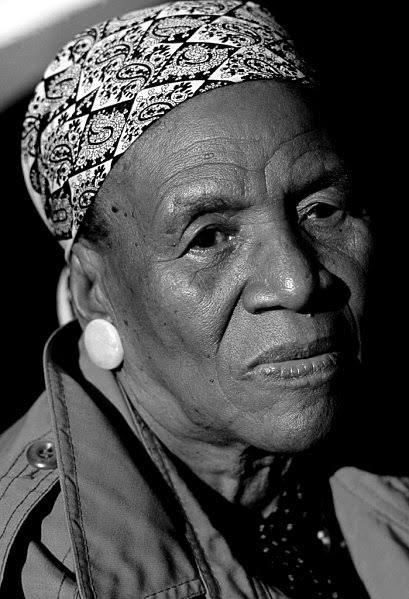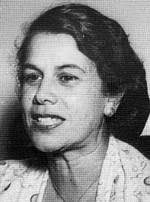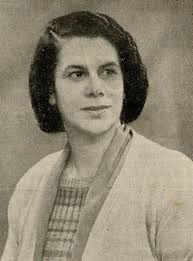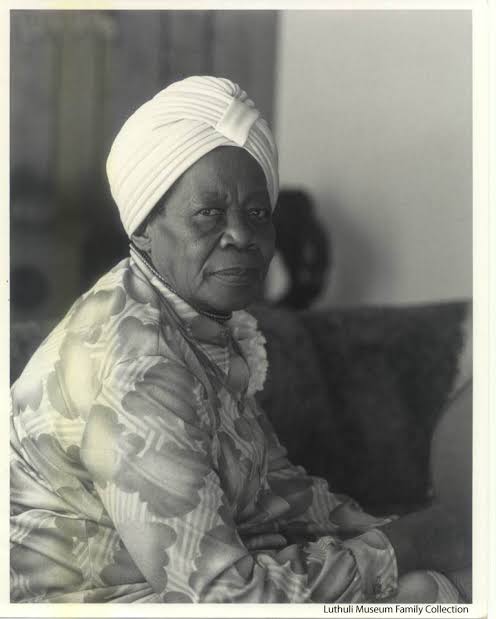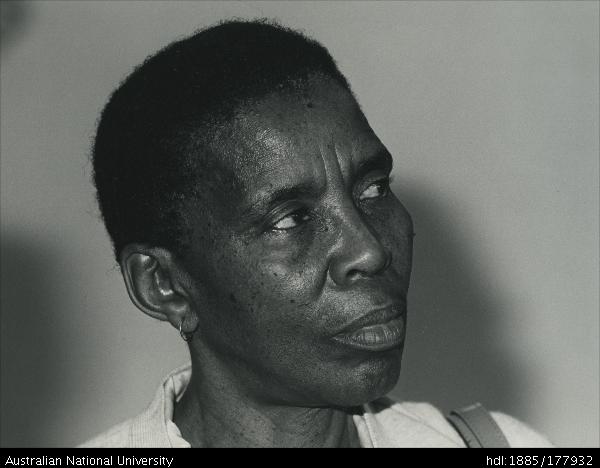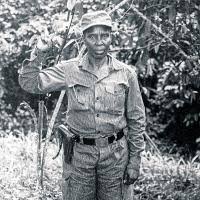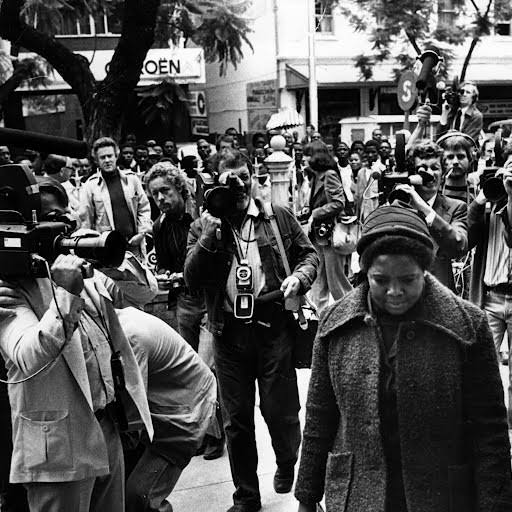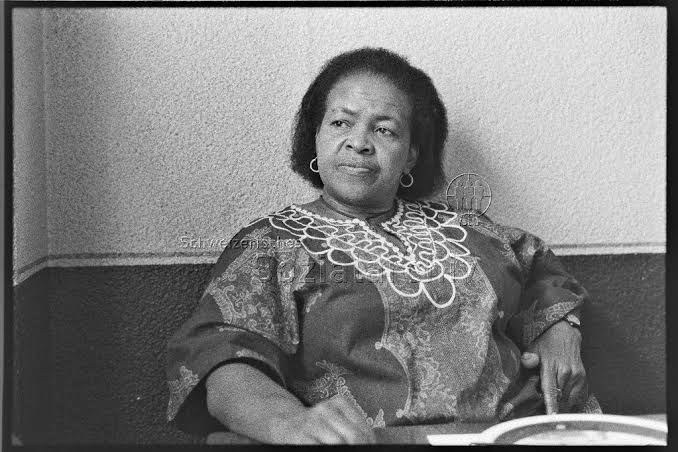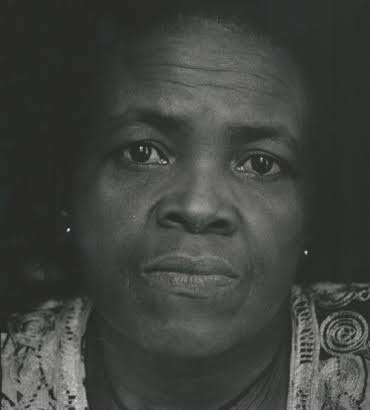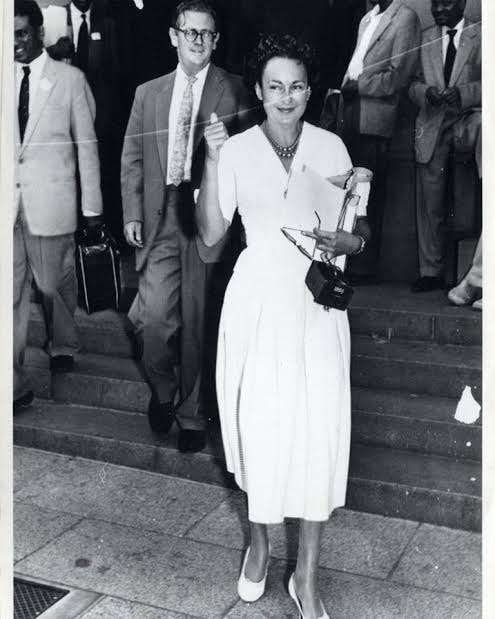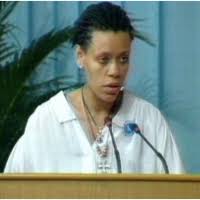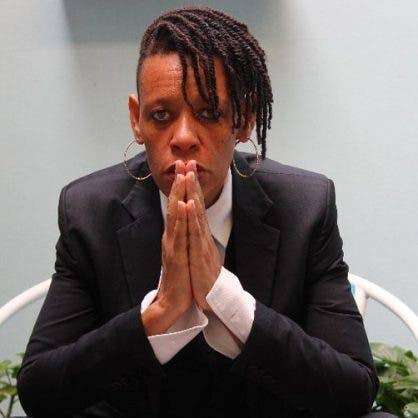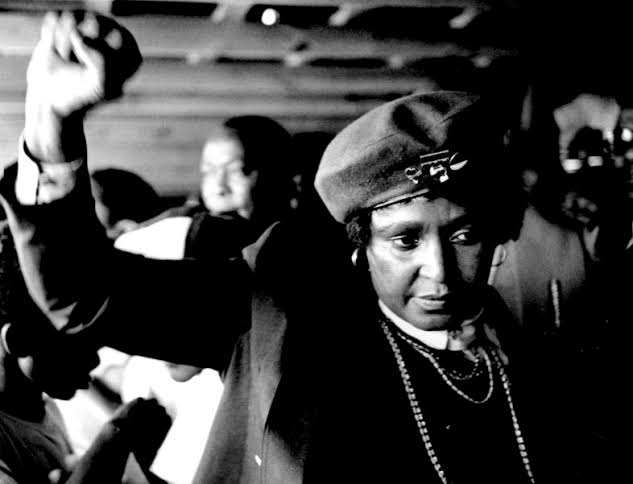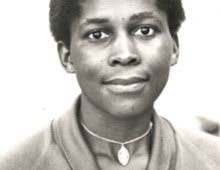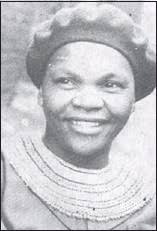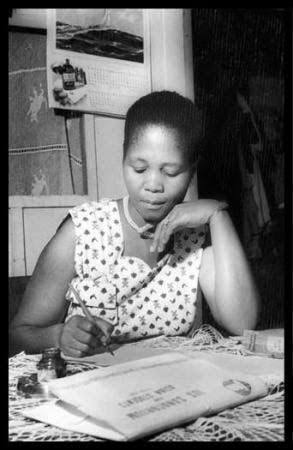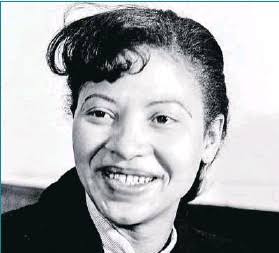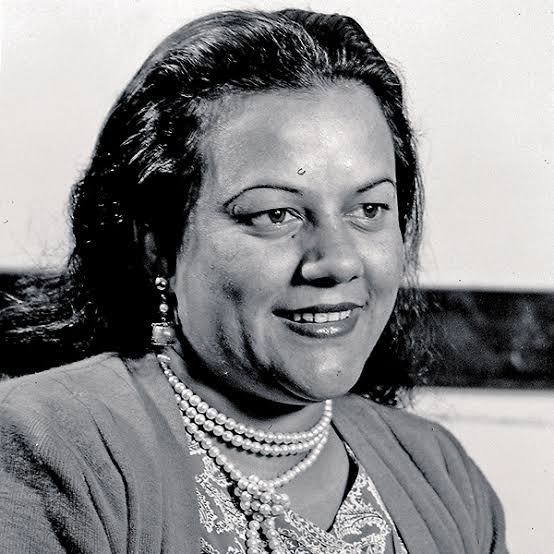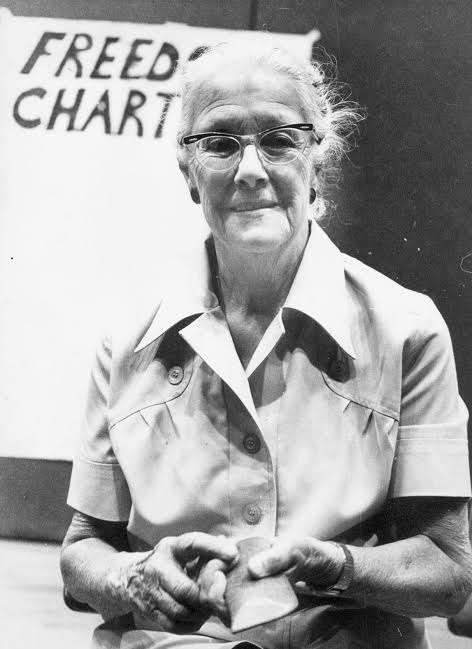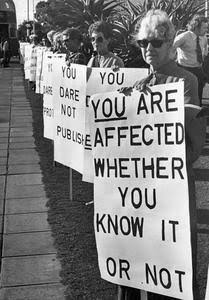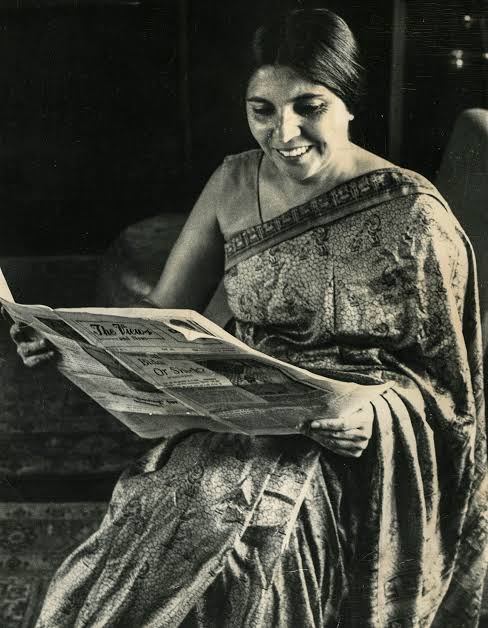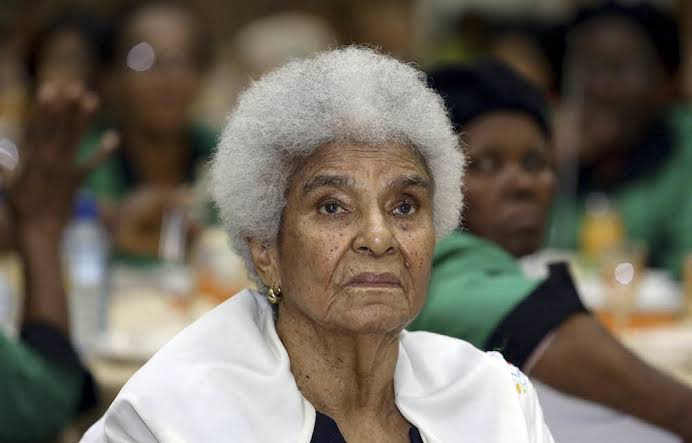In honor of women's day, here's a thread on women we should know. This is not limited to this day in 1956 to show that women have been a mainstay in the struggle for liberation. First up, Charlotte Maxeke who led the first anti-pass march on 23 September 1913.
Maxeke is the founder of the Bantu Women's Leauge which eventually became the ANCWL. She led a group of women outraged at their petitions falling on deaf ears. They marched into Bloem, burned passes and swore at police officers. They sparked civil disobedience for days later.
The anti-pass campaign was a series of protests last several years but leading to withdrawal of pass laws of the time.
This is not chronological so I'm going to jump to 1984. This is Theresa Ramashola the first woman sentenced to death after the murder of Sharpevill mayor Jacob Dlamini. The PAC Women's league was formed in 1986 to campaign among other things for her release.
Her mother was Julia Ramashola who was among the people who protested in Sharpeville. She was among the people shot at and she was pregnant with Theresa at the time of the Sharpeville massacre. Theresa was part of rent boycotts and protests in the 80s which led to to her arrest.
This is Dorothy Nyembe. She is the longest serving woman political prisoner for her role in the struggle. She was a leader in the Women's League Natal branch and was one of the earliest mobilizes of rural and grass roots movement. She is one of Mam' Nomzamo's heroes.
Poqokazi, Nomvo Booi was the first woman to go under ground when the military wing of the PAC was formed on 11 September. She was also a courier and headed up the welfare section in exile in between assembling an AK.
Annie Silinga was a member of the Langa Vigilance committee established in 1952 when the Defiance Campaign began. She served in the executive committee of FSAW which organized the women's march that took place on this day in 1956. She was among those tried in the Treason Trial.
Annie Silinga passed away in 1984 having never carried a pass. Her refusal to do so had obviously landed her in trouble. She was banished to Transkei but successfully appealed & moved her family back to Cape Town. She was also among those arrested in the 1960 state of emergency.
This is Madie Nobantu Hall Xuma. She was the president of the Women's League while her husband AB was it's president. She also founded the YWCA whose leaders would later include Ellen Kuzwayo.
Frances Baard was a unionist and among the women who marched on this day in 1956. She was a leader in the Food and Canning Workers Union and SACTU. She was arrested in 63 and spent a year in solitary confinement. In 64 she was sentenced to 5 years. In 69 she was banished to PTA.
Zainunnisa Gool popularly known as Cissy Gool was the founding president of National Liberation League and Non-European Unity Front respectively. She led successful protests against a number of segregation laws in Cape Town.
I'll continue after lunch.
Let's continue!
This is Nokukhanya Luthuli. She was a farmer and after her husband, iNkosi uAlbert Luthuli won the Nobel Peace prize, the money was used to buy farms in Swaziland. These were crucial to housing the activists who went underground after Sharpeville.
This is Nokukhanya Luthuli. She was a farmer and after her husband, iNkosi uAlbert Luthuli won the Nobel Peace prize, the money was used to buy farms in Swaziland. These were crucial to housing the activists who went underground after Sharpeville.
MaBhengu, as Nokukhanya was affectionately known was also part of Daughters of Africa, an activist group that politicised women and skilled them.
Gertrude Shope was a leader in the Jabavu branch of FSAW. She was secretary of the ANC Women's section in exile and was the co-founder of the magazine Voice of Women.
Ntsiki Biko keeps a low profile but she met her husband Steve through her cousin and founding secretary general of SASO Vuyelwa Mashalaba. She advances the ideas of the Black Community Programs through the foundation she established in her late husband's memory.
Ntsiki Biko faced harrassment for wanting answers re her husband's murder in 1977. She also was responsible for setting up and running youth programs in Ginsberg. I hear a biography on her life is in the works.
Not only were women founding movements, building them, & leading campaigns they were writing too. Among these was Miriam Tlali whose writing was banned in South Africa because it exposed the brutality of the regime. This year is the 45th anniversary of Muriel at the Metropolitan.
Miriam Tlali's books may have been banned here, but they were published in several languages around the world. When we think of international solidarity building against apartheid we must remember novelists like Mam' Miriam.
Another writer is Ruth First. Not only was she a journalist reporting on the brutal apartheid regime here. She also investigated human rights violations in Namibia. After Germany lost its colonies after WW1 South Africa decided it was going to occupy that nation.
This is why apartheid policy was implemented in that nation. This is among the reasons why the Border War happened- to protect apartheid South Africa interests. Firsts writing about the situations here and in Namibia are among the reasons she was targeted by the regime.
So it is hard finding stories of women. They are often just the wives of their more prominent husbands. It is even harder finding women not linked to men. But here's one, Beverly Ditsie who delivered her historic speech to the UN re LGBT rights this year 25 years ago.
When we talk about intersectionality this is what we mean. Beverly Ditsie who was one of the founding leaders of Pride marches in SA demonstrates that fight for freedom means nothing if LGBT folk aren't free. We still have a long way to go. But we move.
14 September 2020 will mark 50 years since Mam' Nomzamo's release from solitary confinement after 491 days. But she wasn't alone...
This is Joyce Sikhakhane-Rankin. She was a journalist who wrote about the apartheid regime and how it brutalized Black people she also covered the Rivonia Trial. She met Mam' Nomzamo through Mama's colleague and friend Rita Ndzanga.
Joyce was also a founding member of the African Students Association. When the liberation movements went underground, Sikhakhane was among those who mobilized cells to continue the work started by the generation of the Defiance Campaign. This is why she was detained in 1969.
Like Mam' Nomzamo and Mam' Rita she was tortured and held in solitary confinement and was among the 22 tried under Section 6 of the Terrorism Act. Shanthini Naidoo has written a book about this period in history specifically the women involved.
Florence Matomela led influx control boycotts in Port Elizabeth in 1950. She was a volunteer in the Defiance Campaign and later became the Vice President of FSAW the year women marched to the union buildings on this day. She was detained in the 60s for her continued activism.
This is Florence Mophosho. Today marks the 35th anniversary of her death while in exile. She mobilized women of Alexandra where she was born to participate in the Women's March on this day in 1956. She was detained in 1964 for her activism. She left thereafter for Tanzania.
This year marked 40 years since Lilian Ngoyi's passing (13 March). She was the first woman elected to the ANC NEC. She is among the 4 women who led the 20000 strong march on this day in 1956. She was smuggled out of the country in 1955 to attend a Women's convention in Europe.
Sophie Williams de Bruyn is one of the 4 who led the women on this day. She is the founding member of the South African Congress of Trade Unions & was a leader of the Coloured People's Congress & mobilized Coloured women to march on this day. Of the 4 women she is still alive.
Rahima Moosa was also one of the 4 women who led this march. She was a member of the Indian Congress & the ANC. She had a twin sister but the state never knew that so she'd switch with her sis every time the police came looking for her which meant no fingerprints lol.
The last of the women who led on this day was Helen Joseph. She was a founding leader of the Congress of Democrats an organisation that identified as an ally of the ANC. She was a social worker. Mama's Nomzamo saw her as her mother figure & mentor. Helen visited her in Brandfort
This is Fatima Meer Madiba's first biographer. Pity this book is out of print it is so important not just in telling the man's story but telling the story of the women in his life without making them auxiliaries. She also produced art work highlighting apartheid brutality.
These artworks were smuggled out of the country with the help of Mam' Nomzamo. Meer was also a sociologist.
There are countless women. I hope this thread demonstrates that. I have left out some deliberately because I have already tweeted about them before today. And others have been excluded because they will be remembered soon like Ruth Mompati who would've turned 95 on 14 September.
I'll go into more detail then, as 95 is a big year. We need to pull up the same way the world does when Malcolm X, Frantz Fanon and Patrice Lumumba turned 95 earlier this year.
Here's another thread honoring Ma Mxenge at the start of this month. Happy Women's day. https://twitter.com/valavoosh/status/1289437075415040001?s=19

 Read on Twitter
Read on Twitter